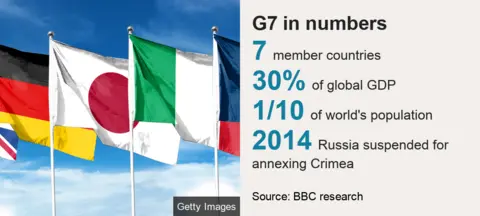
Elementary, my dear Watson! The state of the world’s finances, much like a complex crime scene, demands a keen eye for detail and a logical mind. Today, we turn our attention to the G7, a gathering of the world’s supposedly most advanced economies. Their performance, a web of trade, policy, and influence, is a critical clue in understanding the health of the global marketplace.
Let us first examine the facts. The G7, comprised of Canada, France, Germany, Italy, Japan, the United Kingdom, and the United States, boasts a significant share – roughly a quarter – of global GDP. Their combined economic influence is undeniable. They are the trendsetters, the powerhouses that set the pace for international trade and investment.
However, the game is afoot, Watson. Recent years have seen these economies grapple with a series of challenges. The COVID-19 pandemic, a cunning villain if ever there was one, wreaked havoc on supply chains and consumer confidence. The war in Ukraine, a brutal conflict with far-reaching consequences, has further disrupted energy markets and exacerbated inflation.
These factors, combined with pre-existing issues like rising debt levels, have cast a shadow of uncertainty on the G7’s economic outlook. Some members, like the United States, are experiencing a fragile recovery marked by high inflation. Others, like Japan, struggle with stagnant growth. It is a tangled web indeed.
But fear not, Watson! Even in this murky situation, there are deductions to be made. The G7’s economic health impacts the global economy in several ways. Firstly, through trade. These nations are major exporters and importers, influencing the flow of goods and services around the world. A slowdown in any G7 economy can lead to decreased demand for exports from other countries, triggering a ripple effect.
Secondly, through investment. The G7 holds a significant portion of the world’s financial resources. Decisions made by their central banks and corporations regarding investment strategies can have a profound impact on global capital flows.
Thirdly, through the G7’s leadership role in international institutions like the World Trade Organization (WTO) and the International Monetary Fund (IMF). These organizations play a crucial role in promoting global economic stability and growth. The G7’s influence in these institutions shapes the international economic order.
Now, the question remains: what is the prognosis for the G7 and, by extension, the global economy? The answer, Watson, is far from simple. Much depends on how effectively these nations navigate the current challenges. Their ability to control inflation, manage debt levels, and foster sustainable growth will be crucial. Additionally, their cooperation on issues like climate change and energy security will be vital factors in shaping the future economic landscape.
The G7’s story is far from over. The coming months will be a test of their resilience and their capacity for international collaboration. As we observe their actions, we must remain vigilant, keeping a sharp eye on economic indicators and diplomatic developments. Only then can we truly understand the full impact of this grand economic game on the world stage.
The game is afoot, Watson and the stakes are high. The fate of the global economy hangs in the balance. But with a clear head and a keen eye for deduction, we can follow the clues and unravel the mysteries at play. The great game continues!


